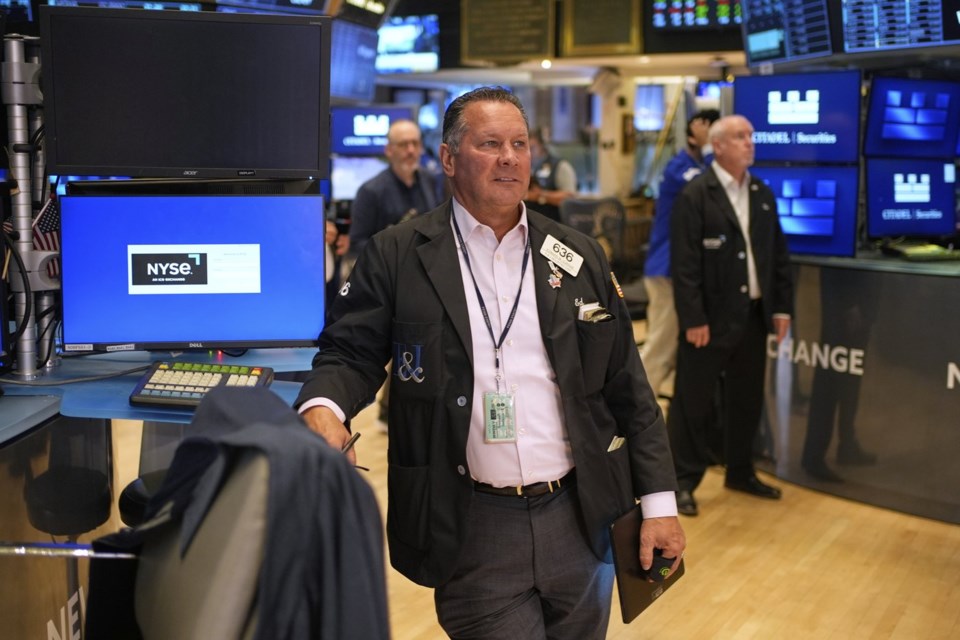NEW YORK (AP) — U.S. stocks are drifting following some mixed data on inflation and profits at some of the biggest U.S. banks. The
S&P 500 was up 0.2% in early trading Tuesday, close to the all-time high set on Thursday.
The Dow Jones Industrial Average was down 88 points, or 0.2%, and the Nasdaq composite was up 0.6%.
Nvidia helped lead tech stocks higher after the chip giant won approval from the U.S. goverment to sell its advanced H20 computer chips used for artificial intelligence to China. Nvidia rose 3.2%
Shares of major U.S. banks were mixed after several of them released their latest quarterly earnings reports. JPMorgan Chase slipped 0.5% despite beating analysts' profit forecasts. A closely watched measure of profitability rose less than expected. Citigroup rose 1.4% after reporting profits that beat forecasts.
The Labor Department reported that inflation rose last month to its highest level since February as President Donald Trump’s sweeping tariffs push up the cost of a range of goods, including furniture, clothing, and large appliances. Prices paid by U.S. consumers rose 2.7% in June from a year earlier, up from an annual increase of 2.4% in May.
European markets were slightly higher. Germany's DAX was up 0.2% and France's CAC 40 was up less than 0.1%.
Hong Kong's Hang Seng rose 1.6%. The Shanghai Composite dipped 0.4% after the Chinese government reported that China's economy slowed in the last quarter as Trump’s trade war escalated.
Tuesday's data showed the economy expanded at a robust 5.2% annual pace, compared with 5.4% annual growth in January-March.
Despite worries about the damage Trump's tariffs may have on the region's exporters, speculation continues that he may ultimately back down on them. They don't take effect until Aug. 1, which leaves time for more negotiations.
If Trump were to enact all his proposed tariffs on Aug. 1, they would raise the risk of a recession. That would not only hurt American consumers but also raise the pressure on the U.S. government’s debt level relative to the economy’s size, particularly after Washington approved big tax cuts that will add to the deficit.
Yuri Kageyama, The Associated Press



